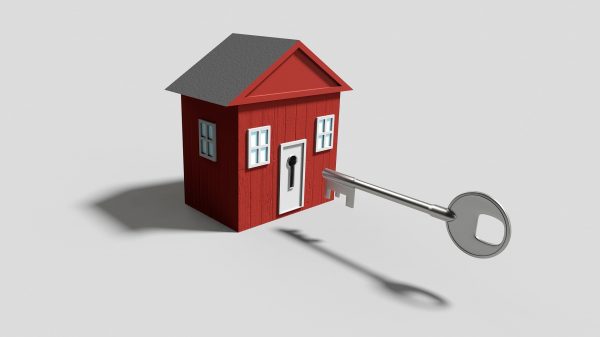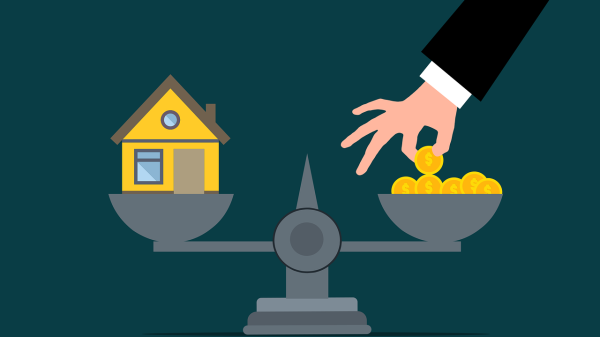The VA loans have been developed to ease access to a home for veterans and their families. Namely, the VA loans should assist this category of borrowers in purchasing a home or refinancing their existing debt. Because of the importance and the widespread usage of VA mortgage loans, you consider some of the reasons to apply for one as well. Namely, there are numerous benefits offered by VA loans for eligible borrowers. So, if you have served the army, make sure that you have information about the benefits of VA loans. Do not apply for other loans or mortgages before getting acquainted with the positive aspects of VA loans. Before understanding the pros of VA loans, you should understand what VA mortgage loans are.
VA mortgage loans defined
VA loans are mortgage loans guaranteed by the United States Department of Veterans Affairs. This type of loan aims to assist veterans and their families to purchase a home. In addition, this type of loan can also assist borrowers in refinancing their existing debt(s). The Department of Veteran Affairs prescribes the rules and guidelines for borrowers that might qualify for the loan. The loan is issued by relevant institutions such as banks following predefined rules and conditions. The Department of Veteran Affairs is insuring the loans against default.
The VA loans can offer 100% financing for your home. To be eligible for this type of loan, you should provide a certificate about the record of military service. You provide the certificate for your military services to the lender.
Reasons to apply for VA mortgage loans
Lower interest rates – in comparison to other loans is one of the benefits of VA loans. VA mortgage loans will charge you lower interest rates, especially in comparison to conventional loans. Thus, one benefit would be the saving you would make on your interest charges. In addition, competitive interest rates can be offered even to borrowers with lower credit scores.
No need for a down payment – which is an adequate characteristic of the VA mortgage loans. Namely, the down payment is one of the main obstacles when you want to purchase a home. You need to come up with enough money to satisfy the loan to value ratio required by the lender, which is on average 80%. This means that you need to have 20% of the property value to put in as a down payment, which is an obstacle if you do not have any savings accumulated. It should be noted, though, that in some circumstances, you will not need a down payment for properties with a value up to $417,000. If you have a higher loan to value ratio with conventional loans, you will have to pay for private mortgage insurance. This imposes an additional burden on your budget. The no down payment on VA mortgage provides the benefit of saving additional money you would otherwise spend with other types of mortgages.
Look at the table below to get a better understanding of the down payment requirements with other types of loans.
Table 1: Down payment requirements for selected types of loans
| Traditional down payment | Conventional loan | FHA loan | VA loan | |
| Down Payment Percentage | 20% | 10% | 3.50% | 0% |
| Purchase Price | $200,000 | $200,000 | $200,000 | $200,000 |
| Down Payment Amount | $40,000 | $20,000 | $7,000 | $0 |
Source: Investopedia – http://www.investopedia.com/articles/mortgages-real-estate/10/advantages-va-loans.asp#ixzz4NbmqNgYd
You can notice the difference regarding the amount you would need upfront if you want to apply for some of the loans stated in table 1. Unlike the other loans, you will need $0 for taking the VA loan, which means that you do not need to wait for years to buy your dream home. Instead, you can purchase your home as soon as the application is processed and the loan is approved.
Flexible credit requirement – is a major benefit for borrowers who do not have excellent credit scores. VA loans require a lower credit score than the one required by lenders for other types of loans. For instance, you should have a credit score of 620 for a VA loan, while a conventional loan might require a credit score of 740. Keep in mind that VA lenders’ acceptance of lower scores will not impose a higher interest rate. The interest rate asked by VA lenders is not influenced by the borrower’s credit score. When applying for a VA loan, the VA program will go through your credit history in the past year or so. Thus, if you do not have a bankruptcy or some form of collection recorded on your credit score, you are good to go.
There is no need for private mortgage insurance (PMI), as you would otherwise need with the conventional or FHA loans. If you are not able to provide the required down payment (20%), you will be hit with a private mortgage insurance cost. But with VA loans, there is no need for you to pay a PMI. This is so because you are not required to provide any down payment. Therefore, you will save approximately $100 each month, maybe, even more, depending on the loan amount.
Relaxed DTI ratio requirements – debt to income ratio (DTI) can be considered as a measure of your financial health. It is taking into account your income level and debt level. The value of this ratio for conventional loans is around 36%. Consequently, if you have a higher level of DTI ratio, you may not get approved. The DTI ratio requirement for VA loans is around 41%. It is possible for this percent to be higher for a VA loan, depending on the lender.
Closing costs restrictions – closing costs are an inevitable part of almost any mortgage. VA loans are no exception. You have to pay the closing cost on the VA mortgage. The benefit, though, is that the VA program restricts the costs borrowers can be charged with. In addition, some of the costs and fees can be paid by the seller. That is if the seller agrees to cover some of the costs.
The prepayment penalty is excluded – if you decide to repay in full your principal amount before loan maturity. If for some reason, you want and you can pay back your VA loan earlier than the loan term, you will not pay prepayment fees. With the other types of loans, the lender can ask for a prepayment fee.
Low foreclosure rate – because the goal of the VA guaranty program is to help the borrowers. Thus, when the borrower is faced with financial problems, the VA program is offering advice and works closely to not go into foreclosure. For this reason, VA loans have a low rate of foreclosure.
It is a transferable (assumable) – transferable or assumable loan means that the buyer of your home can take over your mortgage. Mortgage monthly payments will be assumed by the new owner. Meaning that the new owner is responsible for the mortgage, not you. This process saves a lot of money and the hassle of going through the application process for a new loan. Nowadays, the VA program is one of the very few (if not the only) programs offering assumable loans. This means that VA loans can be transferred to the new owner. If able to qualify, the new owner can assume the mortgage if he or she has served the military. If the new owner cannot qualify for a VA mortgage, the mortgage can still be assumed. The limitation is that you will not be able to qualify for a new VA mortgage until the existing mortgage is paid off by the new owner.
VA loan to refinance your debt – if you have taken a mortgage in a period of higher interest rates. Namely, with a VA mortgage, you can refinance your existing (higher interest rate mortgage.
There are plenty of reasons as to why you should apply for VA loans. VA mortgage loans can be considered superior to conventional loans in some instances (for instance- no down payment or low DTI). Making the decision on the type of loan you will apply for should be based on relevant information. You should have gathered information about the different types of loans before making any decision. VA loans can offer numerous benefits, but if neglected, you may even not consider them as an option for your financial needs.






